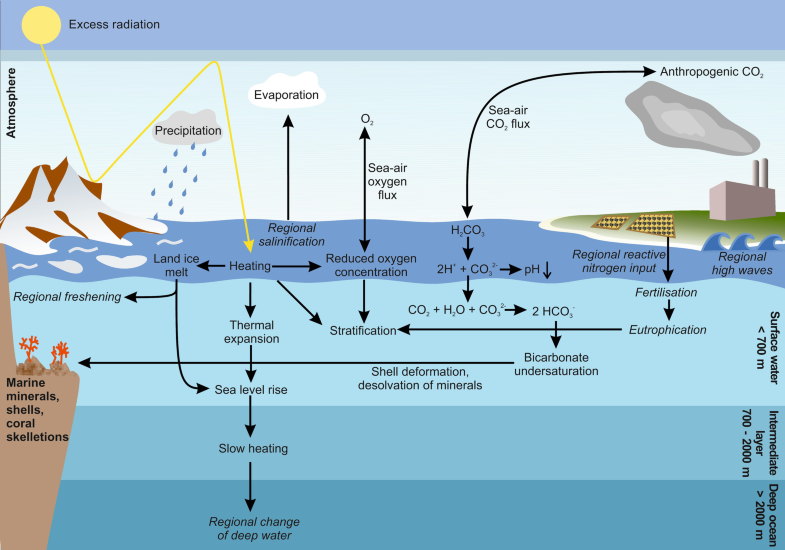A Statista DossierPlus on the impact of climate change on the resilience and sustainability of the world’s oceans.
State of the oceansOceans are an essential component of the Earth’s ecosystem – for oxygen, food, and water – it is impossible to sustain life on Earth without them. Oceans play an essential role in providing services for climate regulation and a rich resource for genetic pools, minerals, and, recently, renewable energy. They are crucial to the global economy, supporting key industries such as fisheries and tourism, transport, and trade. While the oceans have supported humanity from the beginning, resource consumption in recent centuries has threatened their survival. Some of the major drivers that endanger their health are global warming, pollution, and habitat degradation.
Oceans are warming up
Annual anomalies in global ocean surface temperature from 1880 to 2021 (in degrees Celsius)
In 2015, to combat the massive economic, social, and environmental challenges faced by our planet, governments worldwide under the auspices of the United Nations General Assembly set up 17 Sustainable Development Goals (SDGs), a list of global goals intended to be achieved by 2030. It provides “a shared blueprint for peace and prosperity for people and the planet, now and into the future” (UN). SDG 14 was created to conserve and sustainably use the oceans, seas, and marine resources. Of all the Sustainable Development Goals, SDG 14 is by far the least funded, receiving 1.92 billion U.S. dollars in 2019. In comparison, SDG 15 – Life on land – received 5.8 billion U.S. dollars that same year.
The U.S. and the EU are the leading providers of ODA for SDG 14 worldwide
Statista is proud to publish the State of the oceans DossierPlus in cooperation with the German Ocean Foundation.
Read more at Statista.com.

